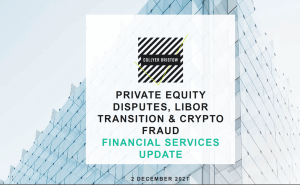- Private Equity

Shorter Reads
The importance of resisting the lure of a standardised approach to ESG-reporting
There are countless examples of companies publicising their sustainability activities and successes and climate targets for the future.
2 minute read
Published 26 January 2022
Key information
- Specialisms
- Business
- Services
- Private Equity
As governments set their own environmental goals, companies follow suit with ambitious and headline-grabbing targets for achieving, among other things, net-zero emissions.
But what are companies actually required to do in terms of reporting climate targets? And why should they take such reporting seriously, as opposed to a box-ticking exercise that can be covered using generic ‘boilerplate’ statements that say little about their specific activities and ambitions?
At present, many organisations are subject to various requirements to make climate-related disclosures. Most companies are required to publish a Strategic Report, including details of how the directors have given consideration to the impact of the company’s operations on the community and the environment.
For listed companies, the Strategic Report must contain further information, including the main trends and factors likely to affect the future development, performance and position of the company’s business, which may include climate-related and other environmental matters.
For premium-listed companies, the listing rules, now require disclosures in line with the recommendations of the Taskforce on Climate-Related Financial Disclosures (TCFD), or an explanation if they have not done so. They must disclose their climate-related strategy, taking into consideration different climate-related scenarios, and the metrics and targets used to assess and manage climate-related risks and opportunities.
Green bond guidelines most widely adopted sustainable finance tool in ‘myriad’ of ESG rules
Over the next year, there will be a significant expansion of the scope and application of sustainability and climate reporting requirements for corporates, asset managers and owners, and investment products. A number of additional requirements are set to come into force, including plans for an economy-wide sustainability disclosure requirement (SDR), building on the TCFD recommendations. Mandatory TCFD-aligned disclosure will also be extended to standard-listed issuers, certain publicly quoted companies, large private companies and LLPs.
In the changing landscape, in terms of regulation, industry practice and client demands, we can expect to see a huge increase in the number of companies reporting on how their business is dealing with environmental issues and their climate targets.
It may be tempting for directors to take a standardised approach to reporting on sustainability and climate targets, using ‘boilerplate’ statements which lack detail and fail to offer much (if any) insight on their specific activities and targets. The attraction of this is obvious – it involves minimal investment of time and cost, and many companies fear that specific and bespoke TCFD-aligned disclosures may expose them to increased legal risk.
However, a lowest common denominator approach is not advisable and, in fact, is likely to expose businesses and individual directors to greater risks. Boilerplate language is never ‘one size fits all’. It is also important to note that directors of UK companies have a personal legal obligation to consider the impact of their company’s operations on the community and the environment.
Proper engagement with the TCFD recommendations will likely help companies to manage the risks that apply to their business, assess opportunities, and may reduce the risk of legal liability for companies and directors – for example, for failing to consider and, where material, adequately report, financial risks related to climate change.
Biotech and healthcare investors hope for rebound following weak 2021
Company reporting is increasingly being scrutinised. The Financial Conduct Authority (FCA) has confirmed that ESG matters are high up on the regulatory agenda and it will seek to challenge firms where they see potential ‘greenwashing’. Increased scrutiny is also coming from customers and business partners, and even action groups and other interested parties.
For example, earlier this year, Client Earth filed a complaint to the FCA against Just Eat. They alleged that there were inadequacies with climate-related disclosures made by Just Eat; specifically that they made no reference to climate change, provided limited commentary on environmental impacts and opportunities and risked greenwashing investors by giving a potentially misleading impression of how resilient Just Eat’s business is to climate change. These allegations are not recognised by Just Eat.
Beyond regulatory matters, market forces are also driving an increased focus on climate issues and reporting. These are now mainstream commercial issues with which company directors in every sector have to grapple, bearing in mind the increasing demands of customers, business counterparties and the actions of their competitors. Reputationally, no business can afford to bury their head in the sand when it comes to the environment and climate targets.
In the current regulatory and wider commercial environment, companies should take a considered approach to their compliance, climate targets and related disclosures. They should provide sufficient detail to demonstrate genuine compliance and provide an accurate picture of their business and their ambitions for the future.
Companies must make sure that climate-related reporting is clear about the specific approach they have taken, the methodology used, their sources of data, and include details of limitations they have faced in reaching conclusions, for example, any restrictions in or assumptions made by data providers used.
Moreover, while TCFD-aligned disclosure is currently only required by premium-listed companies, the UK government has committed to making climate-related disclosures fully mandatory across the economy. Companies should start engaging with the process and think about their climate targets now, to be ready for upcoming regulation and to keep pace with market expectations. The greater risk is to do nothing. Climate-related disclosures are now an issue for everyone.
First published on Investment Week
Related content
Shorter Reads
The importance of resisting the lure of a standardised approach to ESG-reporting
There are countless examples of companies publicising their sustainability activities and successes and climate targets for the future.
Published 26 January 2022
Associated sectors / services
As governments set their own environmental goals, companies follow suit with ambitious and headline-grabbing targets for achieving, among other things, net-zero emissions.
But what are companies actually required to do in terms of reporting climate targets? And why should they take such reporting seriously, as opposed to a box-ticking exercise that can be covered using generic ‘boilerplate’ statements that say little about their specific activities and ambitions?
At present, many organisations are subject to various requirements to make climate-related disclosures. Most companies are required to publish a Strategic Report, including details of how the directors have given consideration to the impact of the company’s operations on the community and the environment.
For listed companies, the Strategic Report must contain further information, including the main trends and factors likely to affect the future development, performance and position of the company’s business, which may include climate-related and other environmental matters.
For premium-listed companies, the listing rules, now require disclosures in line with the recommendations of the Taskforce on Climate-Related Financial Disclosures (TCFD), or an explanation if they have not done so. They must disclose their climate-related strategy, taking into consideration different climate-related scenarios, and the metrics and targets used to assess and manage climate-related risks and opportunities.
Green bond guidelines most widely adopted sustainable finance tool in ‘myriad’ of ESG rules
Over the next year, there will be a significant expansion of the scope and application of sustainability and climate reporting requirements for corporates, asset managers and owners, and investment products. A number of additional requirements are set to come into force, including plans for an economy-wide sustainability disclosure requirement (SDR), building on the TCFD recommendations. Mandatory TCFD-aligned disclosure will also be extended to standard-listed issuers, certain publicly quoted companies, large private companies and LLPs.
In the changing landscape, in terms of regulation, industry practice and client demands, we can expect to see a huge increase in the number of companies reporting on how their business is dealing with environmental issues and their climate targets.
It may be tempting for directors to take a standardised approach to reporting on sustainability and climate targets, using ‘boilerplate’ statements which lack detail and fail to offer much (if any) insight on their specific activities and targets. The attraction of this is obvious – it involves minimal investment of time and cost, and many companies fear that specific and bespoke TCFD-aligned disclosures may expose them to increased legal risk.
However, a lowest common denominator approach is not advisable and, in fact, is likely to expose businesses and individual directors to greater risks. Boilerplate language is never ‘one size fits all’. It is also important to note that directors of UK companies have a personal legal obligation to consider the impact of their company’s operations on the community and the environment.
Proper engagement with the TCFD recommendations will likely help companies to manage the risks that apply to their business, assess opportunities, and may reduce the risk of legal liability for companies and directors – for example, for failing to consider and, where material, adequately report, financial risks related to climate change.
Biotech and healthcare investors hope for rebound following weak 2021
Company reporting is increasingly being scrutinised. The Financial Conduct Authority (FCA) has confirmed that ESG matters are high up on the regulatory agenda and it will seek to challenge firms where they see potential ‘greenwashing’. Increased scrutiny is also coming from customers and business partners, and even action groups and other interested parties.
For example, earlier this year, Client Earth filed a complaint to the FCA against Just Eat. They alleged that there were inadequacies with climate-related disclosures made by Just Eat; specifically that they made no reference to climate change, provided limited commentary on environmental impacts and opportunities and risked greenwashing investors by giving a potentially misleading impression of how resilient Just Eat’s business is to climate change. These allegations are not recognised by Just Eat.
Beyond regulatory matters, market forces are also driving an increased focus on climate issues and reporting. These are now mainstream commercial issues with which company directors in every sector have to grapple, bearing in mind the increasing demands of customers, business counterparties and the actions of their competitors. Reputationally, no business can afford to bury their head in the sand when it comes to the environment and climate targets.
In the current regulatory and wider commercial environment, companies should take a considered approach to their compliance, climate targets and related disclosures. They should provide sufficient detail to demonstrate genuine compliance and provide an accurate picture of their business and their ambitions for the future.
Companies must make sure that climate-related reporting is clear about the specific approach they have taken, the methodology used, their sources of data, and include details of limitations they have faced in reaching conclusions, for example, any restrictions in or assumptions made by data providers used.
Moreover, while TCFD-aligned disclosure is currently only required by premium-listed companies, the UK government has committed to making climate-related disclosures fully mandatory across the economy. Companies should start engaging with the process and think about their climate targets now, to be ready for upcoming regulation and to keep pace with market expectations. The greater risk is to do nothing. Climate-related disclosures are now an issue for everyone.
First published on Investment Week
Associated sectors / services
- Private Equity
Need some more information? Make an enquiry below.
Enjoy reading our articles? why not subscribe to notifications so you’ll never miss one?
Subscribe to our articlesMessage us on WhatsApp (calling not available)
Please note that Collyer Bristow provides this service during office hours for general information and enquiries only and that no legal or other professional advice will be provided over the WhatsApp platform. Please also note that if you choose to use this platform your personal data is likely to be processed outside the UK and EEA, including in the US. Appropriate legal or other professional opinion should be taken before taking or omitting to take any action in respect of any specific problem. Collyer Bristow LLP accepts no liability for any loss or damage which may arise from reliance on information provided. All information will be deleted immediately upon completion of a conversation.
Close

































